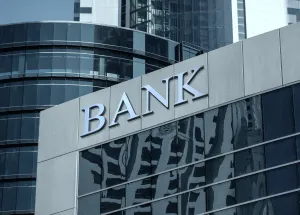For years, cryptocurrency companies have struggled to build and maintain relationships with banks. This is due to a lack of regulatory clarity. Currently, there is increasing pressure on US and EU banks to distance themselves from the crypto industry.
While it may sound positive for crypto as it seeks to establish a code-governed financial system without the need for intermediaries, a return to bank access would be devastating for much of the crypto industry. damage.
back to growth
However, it is unlikely that such a situation will occur. Many well-known banks should start trading with crypto companies in the future. Crypto companies that have survived a bear market with clearer regulations, or started and matured in a bear market, will be subject to tighter regulation and stricter scrutiny.
While this prediction is based on intuition, it is also based on the words of several bankers who spoke anonymously about their expectations for the cryptocurrency industry. Things are tough, but Bitcoin (BTC) isn’t worth zero, and most of the industry has jobs that allow it to survive tough times.
Crypto assets are not going away, and the longer they last, the more likely banks will see them as a growth area again. However, compliance is extremely important for banks, and there are various laws that impose stringent requirements on banks and their crypto customers.
There are already a number of companies that operate more like fintech companies than crypto anarchists, such as cryptocurrency exchange COINBASE and stablecoin Circle. Banks will try to sell their services to such companies.
Rather than challenge banks, regulated blockchain products and companies will improve existing banks.
bank at a distance
This is in stark contrast to the trend of crypto-friendly banks starting to distance themselves from the crypto industry. Many of the crypto-asset-friendly banks are relatively small regional banks, which saw crypto-assets as an opportunity for growth, but have been damaged by the market slump.
The Metropolitan Commercial Bank said 6% of its deposits were made by crypto companies, but said it will stop trading with crypto customers by the end of the year, given “recent events” and regulatory developments. finish. Signature Bank has not completely withdrawn, but it has reduced the scale of transactions, including by restricting transactions with cryptocurrency exchange Binance.
Signature and its rival Silvergate Bank both lost an alarming amount of deposits last year as crypto-related customers withdrew their deposits to support the housing industry during the Great Depression. It is financed by the Federal Home Loan Bank (FHLB), which was created in In the cryptocurrency industry, there was a lender of last resort, the government-affiliated financial institution, the taxpayer.
But the worst isn’t over yet. Silvergate, which has broader ties to crypto firms and is much smaller, is caught up in the wreckage of the FTX bankruptcy and is in jeopardy.
We sold our assets for significantly less than when we bought them last quarter to meet customer withdrawals, and we lost more than we made in the crypto business since we entered the crypto business in 2014. issued.
Related article: Silvergate, the rise and fall of the cryptocurrency business
For other banks looking to enter the cryptocurrency space, the Silvergate case will be a serious disincentive. All the more so after major customers such as Voyager Digital, Celsius Network and BlockFi went bankrupt.
Attitude of regulators
Meanwhile, three U.S. government agencies released statements in January urging banks to end their involvement with crypto assets. In a joint statement dated January 3, the U.S. Federal Reserve (FRB), the U.S. Federal Deposit Insurance Corporation (FDIC), and the U.S. Office of the Comptroller of the Currency (OCC) declared that the issuance or holding of crypto assets is a “safe and sound banking practice.” It is very likely that they will be incompatible,” he said.
“It is important that risks associated with the crypto sector that cannot be mitigated or controlled do not extend to the banking system,” the statement said. Similarly, the European Parliament’s Committee on Economic and Monetary Affairs is also trying to limit the amount of unbacked crypto assets lenders can hold. It’s a precautionary measure to limit the chances of problems in the cryptocurrency industry spreading to the wider financial system.
The EU bill would require banks to hold fiat currency with the same value as crypto assets they hold. While it may sound like a onerous obligation, it is not much different from the collateral requirements that blockchain-based lenders such as Maker, which issues the stablecoin DAI, also employ. Such lenders have successfully weathered the contagion of other crypto firm failures.
It’s easy to see what this situation means. In other words, it will become even more difficult for banks to engage with the cryptocurrency industry in the future. Regulators are celebrating their victory for shielding traditional finance from the effects of the crypto industry crisis. Speaking about the FHLB loan, US Senator Elizabeth Warren said:
“That is why I have been warning of the dangers of allowing cryptocurrencies to be linked to the banking system. We shouldn’t be forced to pay the price for bankruptcy in the wealth industry.”
On the one hand, it is important that an outright ban is not proposed. An outright ban runs counter to the regulator’s commitment to free markets and the goal of promoting capital formation.
As long as the majority of crypto users are investing in crypto using fiat currency and looking to make dollars in the crypto market, crypto companies need banks. And banks need deposits.
Hopefully the industry changes enough that the reputational risks Warren raises are a thing of the past. Crypto assets have already learned new ways to market themselves, and increased government oversight and regulation will change them forever.
While regulation may eliminate companies with obvious demand, such as lending firms, it will prevent the problem from recurring. And companies that clear regulations will be able to do business with banks.
|Translation and editing: Akiko Yamaguchi, Takayuki Masuda
|Image: Shutterstock
|Original: How Policy Shaped Crypto’s Banking Prospects
Crypto Assets and Banks: Regulations and Future | coindesk JAPAN | Coindesk Japan appeared first on Our Bitcoin News.



 BlocksInform
BlocksInform











